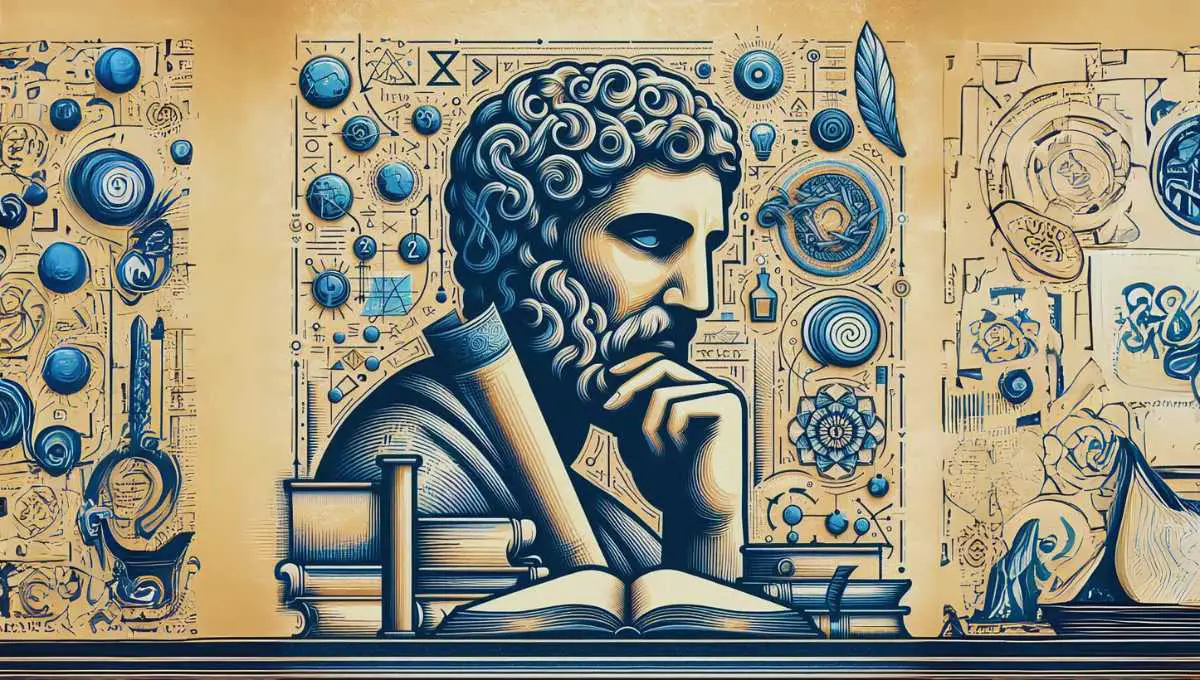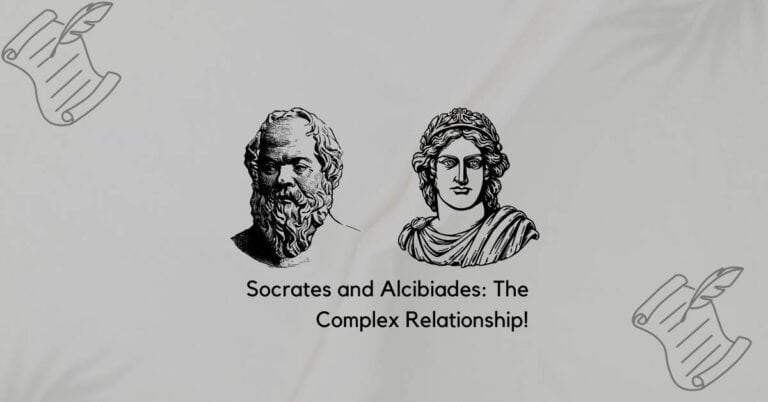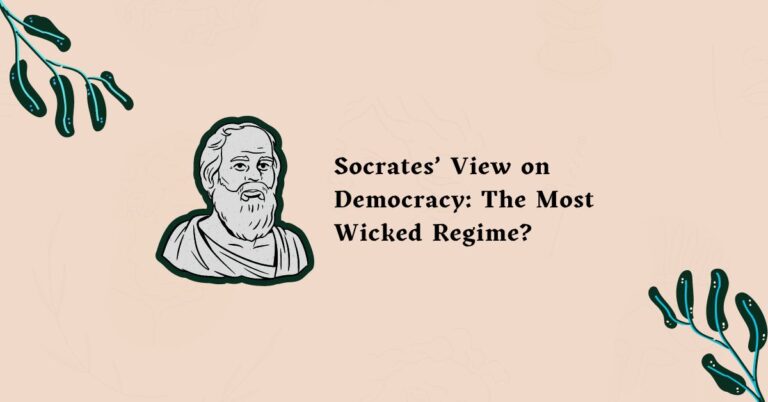Euclid of Megara: The Master of Paradox!
Ever wonder how ancient philosophers shaped modern thinking? Euclid of Megara, a pivotal figure in ancient Greek philosophy, played a huge role. His ideas influenced many and still echo in today’s philosophical discussions.
Euclid of Megara was a student of Socrates and a contemporary of Plato. Known for founding the Megarian school, he combined Socratic dialogue with his own unique ideas. Euclid focused on logic and virtue, setting a foundation for later philosophical developments.
Understanding Euclid of Megara is crucial. His work bridges the gap between Socratic thought and later philosophies like Stoicism. By studying Euclid, we gain insights into the evolution of Western philosophy.
This blog post will explore the life, works, and impact of Euclid of Megara. We’ll dive into his background, key contributions, and lasting influence. Ready to journey through the mind of a philosophical giant? Let’s go!
1. Early Life and Background:
Birth and Early Life
Euclid of Megara was born in the city of Megara, Greece, around the late 5th century BCE. Megara, known for its robust intellectual tradition, provided a fertile ground for his early education. Although detailed records of his early life are scarce, it is believed that Euclid was well-educated and exposed to various philosophical ideas from a young age. This intellectual environment likely sparked his interest in philosophy and set the stage for his future contributions.
Mentorship by Socrates
Euclid’s philosophical journey took a significant turn when he met Socrates in Athens. Socrates, known for his method of questioning and dialogue, greatly influenced Euclid’s thinking. Under Socrates’ mentorship, Euclid honed his skills in dialectical reasoning and ethical inquiry.
Socrates’ approach was not about imparting knowledge but about stimulating critical thinking. He used questioning to expose contradictions and provoke deeper understanding. Euclid absorbed this method and later integrated it into his own teachings.
After Socrates’ execution in 399 BCE, Euclid, along with other Socratic followers, left Athens due to the hostile environment for philosophers. Euclid returned to Megara, where he continued to develop his philosophical ideas. He founded the Megarian school, which blended Socratic dialogue with his own emphasis on logic and virtue.
Euclid’s loyalty to Socrates and his methods is evident in his works. He often used Socratic questioning to dissect philosophical problems and explore ethical concepts. This influence made Euclid’s philosophy a crucial link between Socratic thought and later developments in Greek philosophy.
Euclid’s adherence to Socratic principles helped preserve and transmit Socratic ideas. His unique contributions also laid the groundwork for future schools of thought, such as Stoicism. Through Euclid, Socratic methods found new life and continued to influence philosophical discourse long after Socrates’ death.
2. Philosophical Contributions:
Megarian School
Euclid of Megara founded the Megarian school of philosophy after returning to Megara following the execution of Socrates. This school became a haven for Socratic followers who were seeking to continue their philosophical pursuits away from the hostility in Athens. The Megarian school emphasized logic and dialectics, with a strong focus on ethical knowledge. Euclid believed that the highest good was unchangeable and identical to the understanding of virtue. The school’s teachings combined elements of Socratic questioning with Eleatic monism, which posited that reality is unchanging and indivisible. This blend of influences made the Megarian school a unique and important voice in ancient Greek philosophy.
Logical Puzzles and Paradoxes
Euclid was known for his contributions to the development of logic through the use of logical puzzles and paradoxes. These intellectual exercises were designed to challenge and refine the logical reasoning of his students and interlocutors. One famous paradox from the Megarian school is the “Liar Paradox,” which presents a statement that refers to itself in a way that creates a contradiction, such as “This statement is false.” This paradox forces thinkers to confront the complexities of truth and falsehood, revealing the limits of binary logical thinking. Additionally, Euclid’s work on modal logic—concerning necessity and possibility—pushed the boundaries of how philosophers understood propositions and their truth values under different conditions. By employing these puzzles, Euclid demonstrated the necessity of rigorous critical thinking and the depth required in logical analysis.
Dialectical Method
Euclid’s use of the dialectical method was central to his philosophical approach. Dialectics involves structured dialogue where questions and answers are used to explore and resolve philosophical problems. This method, inherited from Socrates, is aimed at uncovering contradictions in one’s beliefs and refining them towards greater clarity and truth. Euclid employed dialectics not only to dissect and understand ethical concepts but also to examine logical propositions rigorously. Through persistent questioning, he sought to reveal the underlying assumptions of his interlocutors, challenge them, and guide them toward more consistent and rational viewpoints. This method proved to be a powerful tool for philosophical inquiry and laid the groundwork for future dialectical methods used by later philosophers, including the Stoics.
Ethics and Virtue
Euclid of Megara’s ethical philosophy centered on the belief that virtue is synonymous with knowledge. He posited that understanding the nature of virtue was essential for achieving the highest good. Euclid argued that virtues, such as wisdom, courage, and temperance, were intellectual qualities that guided ethical behavior. He believed that true happiness could only be achieved by aligning one’s actions with reason, which in turn required the cultivation of these virtues. This intellectual approach to ethics suggested that moral failings were due to a lack of knowledge and that by educating individuals and refining their understanding of virtue, they could live more ethical lives. Euclid’s emphasis on the intellectual aspect of virtue significantly influenced later philosophical traditions, especially Stoicism, which also stressed the importance of rationality and virtue in ethical living.
Impact on Stoicism and Later Philosophy
Euclid’s philosophical contributions had a lasting impact on later schools of thought, particularly Stoicism. The Stoics adopted and adapted many Megarian ideas, especially those concerning logic and ethics. Zeno of Citium, the founder of Stoicism, was influenced by Euclid’s teachings on virtue and rationality. The Stoics developed a comprehensive ethical system that emphasized living by nature and reason, concepts that were central to Euclid’s philosophy. Additionally, the rigorous logical methods pioneered by the Megarians were further refined by Stoic logicians, who continued to develop and expand upon the foundations laid by Euclid and his school.
Euclid of Megara’s work bridged the gap between the Socratic tradition and later philosophical developments. By founding the Megarian school, contributing to the field of logic with puzzles and paradoxes, employing the dialectical method, and emphasizing the importance of virtue and ethical knowledge, Euclid left an enduring legacy. His ideas not only influenced his contemporaries but also set the stage for future philosophical advancements, ensuring that his contributions would resonate throughout the history of Western philosophy.
3. Key Works and Teachings:
Major Works
Euclid’s works did not survive antiquity in their entirety, and much of what we know about his writings comes from later sources. However, his contributions have been inferred through references by other philosophers and scholars:
- “Logoi” (Dialogues): Euclid likely composed dialogues akin to those of Plato. These works would have featured philosophical debates and dialectical exchanges aimed at exploring ethical and logical issues. The style of these dialogues was probably Socratic, involving questions and answers to stimulate critical thinking and uncover deeper truths.
- Logical Treatises: While specific titles are not available, Euclid’s contributions to logic are well-documented through the logical puzzles and paradoxes attributed to the Megarian school. These treatises likely dealt with modal logic (the study of necessity and possibility), examining how propositions could be true in different circumstances.
- Ethical Discourses: Euclid’s teachings on virtue and ethics were fundamental to his philosophy. His discourses would have articulated his belief in the unity of virtue and knowledge and the importance of intellectual virtues in guiding ethical behavior. These teachings formed the backbone of the Megarian curriculum.
Core Teachings
- Unity of Virtue and Knowledge: Euclid asserted that virtue and knowledge are inseparable. To act virtuously, one must understand what is truly good. Ignorance leads to moral errors, whereas knowledge empowers individuals to make ethical choices. This doctrine emphasizes the intellectual aspect of morality, suggesting that ethical behavior stems from an understanding of virtue.
- Invariance of the Good: Drawing from Eleatic monism, Euclid taught that the highest good is eternal and unchanging. This contrasts with the fluctuating nature of the physical world. For Euclid, the good is a constant, unalterable truth that transcends temporal changes. This belief underscores a metaphysical dimension to his ethical theory, linking it to a stable, immutable reality.
- Use of Dialectics: Euclid’s dialectical method involved structured dialogue aimed at uncovering contradictions and refining philosophical concepts. This method, inspired by Socrates, involves a systematic questioning process to challenge assumptions and clarify ideas. By engaging in dialectics, Euclid and his followers sought to achieve a deeper understanding of ethical and logical principles.
- Logical Puzzles and Paradoxes: Euclid employed logical puzzles and paradoxes to stimulate critical thinking and expose the limits of conventional logic. One notable example is the “Liar Paradox,” which questions the truth of statements that refer to themselves. These puzzles not only served as educational tools but also pushed the boundaries of logical theory, highlighting the complexity and nuance of logical reasoning.
Influence on Stoicism
Euclid of Megara’s philosophical contributions had a significant impact on the development of Stoicism:
- Virtue as Central to Ethics: Euclid’s view that virtue is synonymous with knowledge and essential for a good life was a cornerstone of Stoic ethics. The Stoics adopted this principle, asserting that living in accordance with virtue is the key to achieving eudaimonia (flourishing or well-being). This shared emphasis on virtue highlights the continuity between Megarian and Stoic thought.
- Emphasis on Rationality: Both Euclid and the Stoics valued rationality as the foundation of ethical behavior. For the Stoics, reason is the guiding principle of life, enabling individuals to align their actions with nature and achieve inner peace. Euclid’s belief in the intellectual nature of virtue influenced this rationalist approach, reinforcing the idea that ethical living requires a deep understanding of the nature of the good.
- Logical Rigor: The logical techniques and paradoxes developed by Euclid were further refined by the Stoics. Zeno of Citium, the founder of Stoicism, integrated Megarian logical principles into his own teachings, contributing to the advancement of Stoic logic. The Stoics continued to develop and expand upon these logical foundations, making significant contributions to the field of logic.
- Dialectical Method: The Stoics adopted the dialectical method as a means of philosophical inquiry, much like Euclid did. This method involves engaging in structured debates and dialogues to explore philosophical problems and uncover deeper truths. The Stoics used dialectics to refine their ethical and logical doctrines, ensuring rigorous examination and clarity of thought.
Influence on Later Philosophy
Euclid’s philosophical influence extended beyond the Stoics, impacting various other schools of thought:
- Cynicism: The Cynics, with their emphasis on living in accordance with nature and rejecting conventional values, were indirectly influenced by Euclid’s focus on virtue and rationality. While differing in their approach, both schools shared a commitment to ethical living based on reason and virtue.
- Academic Skepticism: Euclid’s dialectical method and logical rigor also influenced the Academic Skeptics, who emphasized the importance of critical inquiry and questioning assumptions. The Skeptics adopted similar techniques to challenge dogmatic beliefs and promote intellectual humility.
- Neoplatonism: Neoplatonists, who sought to synthesize Plato’s philosophy with other traditions, were influenced by the Megarian school’s logical methods. Euclid’s emphasis on the invariance of the good and the unity of virtue and knowledge resonated with Neoplatonic ideas about the nature of reality and the pursuit of the divine.
Euclid of Megara’s contributions to philosophy were profound and far-reaching. Through his major works, core teachings, and influence on later schools of thought, Euclid left an enduring legacy that continues to shape philosophical discourse. His emphasis on the unity of virtue and knowledge, the use of dialectics, and the development of logical puzzles laid the groundwork for future advancements in ethics and logic, ensuring that his ideas remain relevant and influential in the study of philosophy.
4. Historical Context and Influence:
Contemporaries and Rivals
Euclid of Megara lived during a time of great philosophical activity in ancient Greece, particularly in the 4th and 5th centuries BCE. He interacted with several prominent philosophers and schools of thought:
- Socrates: Euclid was a devoted student of Socrates and was deeply influenced by his mentor’s methods and teachings. Socratic dialogue, characterized by questioning and critical discussion, became a cornerstone of Euclid’s own approach.
- Plato: As a fellow student of Socrates, Plato was both a contemporary and a rival to Euclid. While they shared many foundational ideas from Socrates, their philosophical paths diverged. Plato’s focus was on ideal forms and a structured approach to knowledge, whereas Euclid emphasized dialectical methods and logical reasoning.
- Aristotle: Although Aristotle came after Euclid, he was influenced by the logical methods developed by the Megarian school. Aristotle’s own work in logic, particularly in the “Organon,” reflects the rigorous analytical techniques pioneered by Euclid and his followers.
- Antisthenes: Another student of Socrates, Antisthenes founded the Cynic school. While both Euclid and Antisthenes emphasized virtue, their methods differed significantly. The Cynics advocated for a life in accordance with nature and rejected societal norms, whereas Euclid focused on logical and dialectical reasoning.
- Eudoxus of Cnidus: Eudoxus, a contemporary of Euclid, was known for his work in mathematics and astronomy, but he also contributed to philosophy. The interaction between the logical approaches of the Megarians and the mathematical precision of Eudoxus’s work highlights the interdisciplinary nature of ancient Greek thought.
Impact on Later Philosophers
Euclid’s work had a profound influence on later philosophical developments:
- Zeno of Citium: The founder of Stoicism, Zeno was heavily influenced by Euclid’s emphasis on logic and virtue. Stoicism integrated Megarian logical techniques into its own system, emphasizing rationality and ethical living.
- Chrysippus: A later Stoic philosopher, Chrysippus further developed the logical framework laid by Euclid. He expanded Stoic logic into a more comprehensive system, incorporating elements of Megarian logic to address philosophical problems.
- Plotinus: As a major figure in Neoplatonism, Plotinus was influenced by the dialectical methods of the Megarians. Neoplatonism’s focus on the ascent to the One and the integration of various philosophical traditions echoes Euclid’s dialectical approach.
- Proclus: Proclus, a later Neoplatonist, wrote extensive commentaries on Plato and other philosophers, including references to the logical and ethical contributions of Euclid. His work demonstrates the enduring influence of Megarian thought on later philosophical traditions.
Comparison with Other Schools
1. Cynics
- Approach to Virtue: Both Euclid and the Cynics emphasized virtue as central to ethical living. However, the Cynics focused on living in accordance with nature and rejected societal norms, while Euclid believed virtue was rooted in intellectual understanding and logical analysis.
- Methodology: The Cynics employed a more ascetic lifestyle and practical demonstrations of virtue, often using provocative acts to challenge societal values. In contrast, Euclid used dialectical reasoning and logical puzzles to explore and teach virtue.
- Ethical Focus: The Cynics prioritized simplicity and self-sufficiency, advocating for a life free from material desires. Euclid’s ethical teachings, however, were more concerned with the intellectual development of virtues and the role of knowledge in achieving the good life.
2. Epicureans
- Approach to Happiness: Epicurus, the founder of Epicureanism, taught that the goal of life was to attain pleasure and avoid pain. This is fundamentally different from Euclid’s focus on virtue as knowledge and the highest good.
- Methodology: The Epicureans emphasized empirical observation and the avoidance of unnecessary desires to achieve tranquility. Euclid, on the other hand, relied on dialectical methods and logical reasoning to explore philosophical concepts.
- View on Virtue: For the Epicureans, virtues were instrumental in achieving a tranquil and pleasurable life. In contrast, Euclid saw virtues as inherently tied to knowledge and the understanding of the unchanging good.
3. Platonists
- Metaphysical Focus: Plato’s philosophy centered on the existence of ideal forms and the pursuit of knowledge to understand these forms. Euclid shared the Socratic emphasis on knowledge but did not adopt Plato’s theory of forms, focusing instead on logical and dialectical methods.
- Methodology: Both Plato and Euclid used dialogues, but Plato’s were more focused on uncovering metaphysical truths, whereas Euclid’s dialogues aimed at refining logical and ethical understanding through dialectics.
- Ethical Philosophy: Plato’s ethics involved aligning the soul with the forms of the good, the true, and the beautiful. Euclid, while emphasizing the unchanging nature of the good, approached ethics through the cultivation of intellectual virtues and the use of reason.
Euclid of Megara’s place in the history of philosophy is marked by his innovative use of logic and dialectics, his emphasis on virtue as knowledge, and his foundational role in the Megarian school. His interactions with contemporaries and his influence on later philosophers demonstrate the lasting impact of his work. By comparing Euclid’s philosophy with other schools of his time, we see a unique blend of Socratic dialogue, Eleatic monism, and rigorous logical analysis that set the stage for future philosophical developments. Euclid’s legacy continues to be a vital part of the philosophical landscape, bridging the gap between early Greek thought and later schools like Stoicism and Neoplatonism.
5. Modern Relevance:
Legacy in Contemporary Philosophy
Euclid of Megara’s influence extends beyond the ancient world, leaving a lasting impact on contemporary philosophy. His emphasis on logic, dialectics, and virtue continues to resonate in various philosophical discussions today:
- Revival of Virtue Ethics: In recent decades, there has been a resurgence of interest in virtue ethics, a field where Euclid’s ideas play a significant role. Contemporary philosophers like Alasdair MacIntyre and Martha Nussbaum have revisited the importance of character and virtue in ethical theory. Euclid’s notion that virtue is tied to knowledge and the highest good has contributed to this modern ethical discourse.
- Analytical Philosophy: Euclid’s rigorous approach to logic and dialectics has influenced the development of analytical philosophy. This branch of philosophy focuses on clarity of thought and argumentation, echoing Euclid’s methods of dissecting complex ideas through logical analysis. His techniques are reflected in the works of philosophers like Bertrand Russell and Ludwig Wittgenstein, who emphasized precision and clarity in philosophical inquiry.
- Philosophical Methodology: The dialectical method pioneered by Euclid is still a cornerstone in philosophical education and practice. This method’s emphasis on structured dialogue and critical questioning is integral to how philosophy is taught and practiced today. Philosophers continue to use dialectics to explore and resolve complex issues, demonstrating the enduring relevance of Euclid’s approach.
Application of Megarian Logic
Euclid’s contributions to logic, particularly his use of logical puzzles and paradoxes, have enduring applications in contemporary philosophical and logical studies:
- Modal Logic: Euclid’s work on modal logic, which deals with necessity and possibility, laid the groundwork for this branch of logic. Modern logicians like Saul Kripke have expanded on these concepts, developing more sophisticated systems of modal logic. Euclid’s early explorations into the conditions under which propositions are necessarily or possibly true continue to inform current logical theories.
- Paradoxes in Logic: The logical puzzles and paradoxes introduced by Euclid, such as the Liar Paradox, remain central to the study of logic. These paradoxes challenge assumptions about truth and reference, prompting ongoing debate and investigation. Modern logicians and philosophers use these paradoxes to test and refine logical systems, ensuring their robustness and consistency.
- Dialectical Reasoning: Euclid’s dialectical method, which involves structured argumentation and the systematic uncovering of contradictions, is a fundamental tool in contemporary philosophy. This method is used not only in academic settings but also in practical applications such as legal reasoning and debate. Dialectical reasoning helps clarify complex issues, making it an essential technique in various fields.
- Formal Logic Systems: The precision and rigor of Megarian logic have influenced the development of formal logic systems used in computer science and mathematics. Euclid’s insistence on clear definitions and logical consistency has parallels in modern formal systems, where ensuring the validity of arguments is crucial. The influence of Megarian logic can be seen in the algorithms and computational methods that underpin modern technology.
Impact on Ethical Theory
Euclid’s concept of virtue as knowledge and the unity of the good has informed contemporary ethical theories that emphasize character development and moral education. Modern virtue ethicists draw on Euclid’s ideas to argue that ethical living requires more than just rule-following; it necessitates the cultivation of good character traits through understanding and practice.
Influence on Logical Positivism: The emphasis on logic and empirical verification in logical positivism can be traced back to the rigorous logical methods of the Megarian school. Although logical positivism focuses more on empirical data than Euclid did, the foundational emphasis on clear, logical analysis is a shared heritage.
Educational Impact: The Socratic method of teaching, which is a direct legacy of Euclid’s dialectical approach, remains a powerful tool in education today. Law schools, in particular, use the Socratic method to teach students how to think critically and reason logically. This method’s continued use underscores Euclid’s lasting influence on how we teach and learn.
Euclid of Megara’s ideas have an enduring legacy in modern philosophical and logical studies. His emphasis on virtue, logic, and dialectics continues to shape contemporary philosophical thought. Whether in the revival of virtue ethics, the development of modal logic, or the application of dialectical reasoning, Euclid’s contributions remain relevant and influential. His work serves as a bridge between ancient philosophical traditions and modern intellectual pursuits, demonstrating the timeless value of rigorous, logical, and ethical inquiry.
Conclusion:
Euclid of Megara’s contributions to philosophy are both profound and enduring. As a devoted student of Socrates and the founder of the Megarian school, Euclid emphasized the importance of logic, dialectics, and virtue. His work laid the groundwork for future philosophical developments, particularly in Stoicism and Neoplatonism.
Euclid’s focus on the unity of virtue and knowledge, and the invariance of the good, provided a robust framework for ethical thinking. His use of dialectical methods and logical puzzles pushed the boundaries of philosophical inquiry and influenced later developments in logic and analytical philosophy. These contributions are not just historical footnotes but continue to resonate in contemporary philosophical discussions.
Modern philosophy benefits from Euclid’s legacy in various ways. The revival of virtue ethics, the development of modal logic, and the continued use of dialectical reasoning in education and debate all owe a debt to Euclid’s pioneering work. His emphasis on clear, logical thinking and the cultivation of virtue remains relevant in addressing today’s complex ethical and logical challenges.
In exploring Euclid of Megara’s life, works, and impact, we gain a deeper understanding of the evolution of Western philosophy. His ideas continue to inspire and challenge, demonstrating the timeless nature of his contributions. Euclid’s legacy is a testament to the enduring power of rigorous thought and ethical inquiry, bridging the ancient and modern worlds in a continuous quest for knowledge and virtue.





